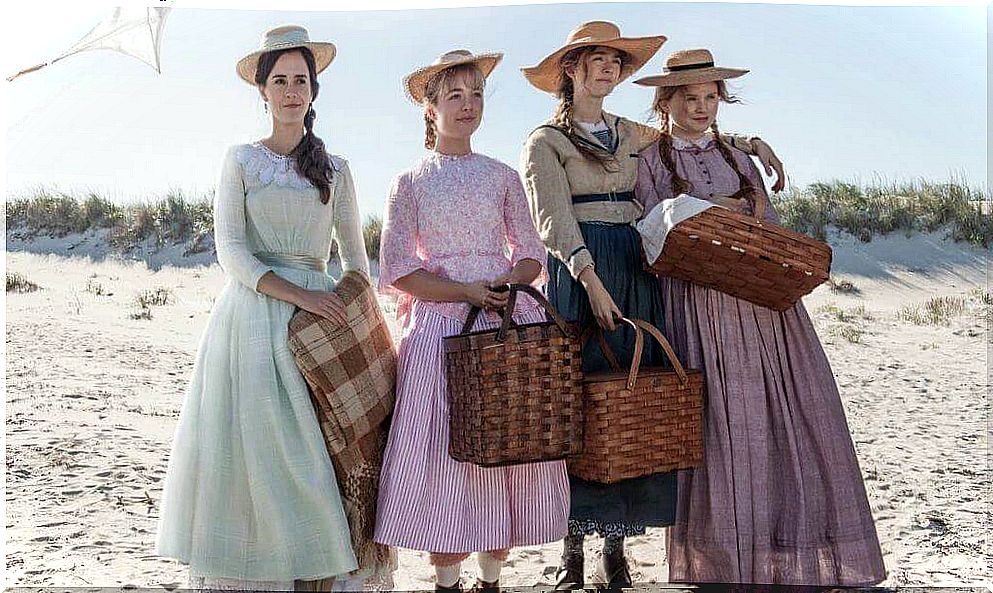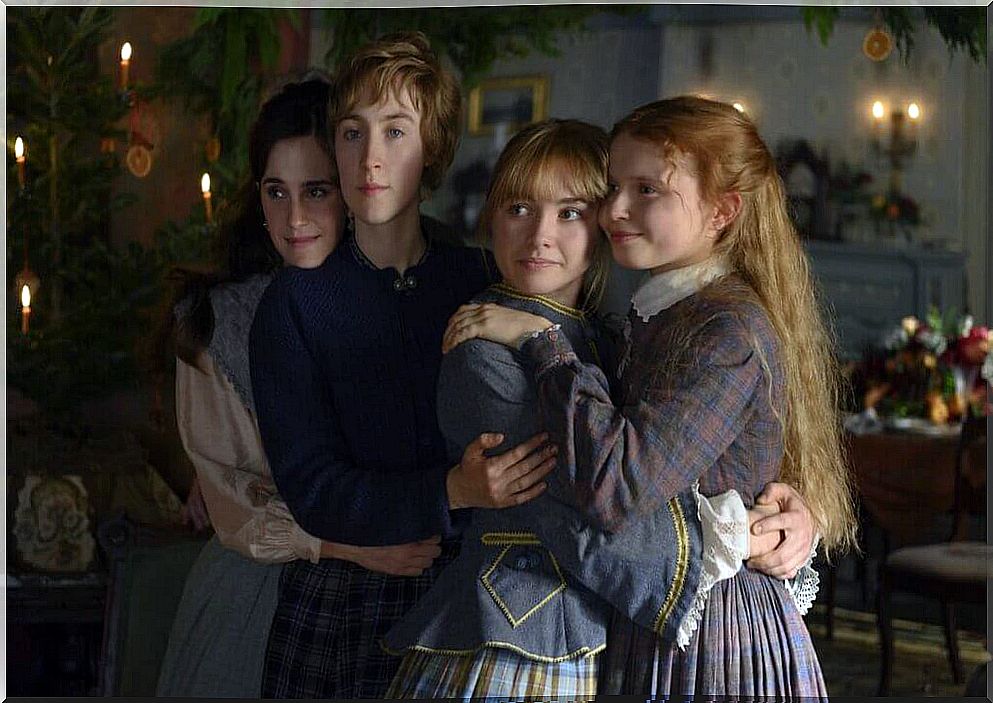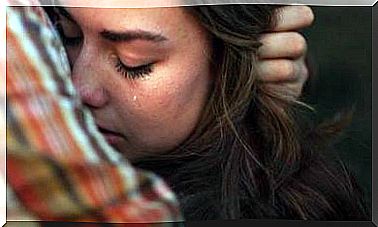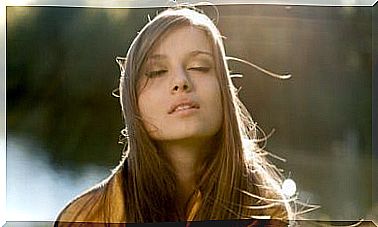Little Women: A New Version

The same story can be told in different ways, told by providing a new point of view, repeated ad nauseam and, even so, exposing something new. The cinema has been greatly nourished by literature and there are not a few literary works that have been brought to the big screen not once, but two or more times. Little Women , the novel that raised Louisa May Alcott to the top, is one of those works that, from time to time, returns to the big screen.
For Greta Gerwig, American actress and director, there is still room for a new reading of the play; a somewhat more up-to-date vision, but without detaching from its roots. The story of Little Women continues to be timeless and, as distant as the 19th century may seem, the message of the play is more alive than ever.
Alcott stood out as a great defender of women’s suffrage, a woman who believed in gender equality. Ahead of her time and with a great passion for writing, she found in everyday life and in her own experiences a story that deserved to be told.
This new version has probably come at a good time, in a historical period in which talking about feminism is no longer taboo, but necessary. And what better way than to use a story from the past? A novel that, from today’s perspective, acquires even more importance.
The update
Gerwig is very faithful to her literary reference, a work that profoundly marked the life of the filmmaker; And yet it still manages to give it a certain freshness. A new look that perfectly matches contemporary needs.
Little Women has always been an atypical work, but successful. The antithesis of the manuals of the good behavior of the woman of her time; a respite, a hope for a more equal future.
The story that Gerwig tells, despite being very faithful to the original, is the one that has captured the greatest episodes of the literary work to date. Let us remember that, among the numerous adaptations, some of them stand out as well known as: the one starring Katherine Hepburn in 1933; the emblematic one directed by Mervyn LeRoy in 1949; or the 1994 adaptation of the hands of Gillian Armstrong.
Although all of them started from the same premise, the first two, without being aware of it, drank from an absolutely macho society. While the 90s version, although it provided a bit more footage, was overshadowed by its predecessors.
Therefore, 2019 seems the exact moment, the ideal moment for the update. An update that sees its maximum in the order -or disorder- in which the events are narrated.
The flashbacks alternate with the present in Gerwig’s Little Women and, in this way, something is achieved that, to date, her film sisters had not achieved : to delve deeper, if possible, into each character. The time jumps allow the filmmaker to get almost intimate with the characters and show that, in a way, our past is reflected in our present.
We are who we are, in part, because of our past experiences. Experiences that can help us understand the complexity of our emotions and who we are today. For this reason, Gerwig, instead of opting for the easy way of tracing and linear history, decides to tell the story through memory. So, in addition to helping us understand their present, it leads us to a series of similar moments in which sadness or joy has been present.
With elegance and conscientiousness, Gerwig tries to unite moments that, in the past, were similar, but with different results: linking a funeral with a wedding, a death with salvation, etc. Through the memory of its protagonist, we know, in greater depth, the life of these young sisters.
Another great success and renewal lies in the character of Amy who, far from being the vain and childish young woman that she was in her childhood, presents an enormous evolution. Unlike the previous adaptations, Amy acquires a greater relief, a greater prominence that leads her to rival her sister Joe, the overwhelming and rebellious writer.
All this to realize that, in reality, they are not so different. Both actresses, Saoirse Ronan (Joe) and Florence Pugh (Amy), compete for the statuette for their roles. Both dazzle and endow the characters with enormous complexity and evolution.
Little women : sisterhood as the key
It is no less a woman who decides to wear “masculine” garments, it is no less a woman who decides to practice a profession that has been culturally associated with men. And, of course, it is not less a woman or less feminist who decides to be happy in her marriage.
Alcott never married, a desire that is evident in young Joe, whose aspirations go far beyond those of any woman of her time. Gerwig’s film recovers a story in which women had to marry with the sole purpose of obtaining a certain stability.
Little Women portrays a group of sisters with strong ideas, different, but full of illusion ; something that we can also appreciate in her mother. Similarly, young Laurie stands out, played by Timothée Chalamet, a young man who also contrasts with the values of his time.
For her part, young Beth, like her mother, prefers to help those most in need, the warmth of a home and embrace music as a way of life; without the need to be a great concert performer. Crowds are not for her and she enjoys the little things. Joe is the rebel, tireless fighter and the one who will most vindicate her frustration at being a woman and not being able to access the same privileges as a man.
You can only remain single if you are rich, that is the lesson that her aunt will try to instill in the young women in order for them to “marry well” to enjoy certain privileges.
Amy is not so different from Joe despite what she may seem at first, more vain and more feminine, but no less important for that; you don’t have to be masculine to be smart. His dream is to succeed with his painting, but painting seems to be made for men. Finally, Meg, the eldest of the sisters, is happy to get married, but not for that reason less of a woman.
Somehow, a certain sisterhood arises, a certain acceptance of others. All women, women who survive in times of turmoil and war, who try to make their lives more joyous. Writing, marriage, painting or the warmth of music and home, no matter the decision, it does not make you less of a woman, nor less of a man; they are simply paths to choose from.

And, incidentally, a small, but forceful, critique of the industry
If something stands out in the new version of Little Women , it is the conversations with the editor. A male editor who firmly believes that his audience needs a married or, at least, dead woman; but not single.
At this point, Gerwig seems to be paying homage to Alcott, putting into Joe’s words what the writer always wanted to say. Why must all women in all stories be linked to love?
Meetings with the editor represent, in a way, a criticism of the film industry and the publishing house. An industry that has severely punished women, that has relegated them, directly or indirectly, to the background.
Your talent does not matter if your story does not sell, your ideas or principles matter little and, of course, your work ceases to be entirely yours the moment power lays its hands on it.
Alcott said no to marriage, and yet there was no novel at the time when a woman did not end up happily married. Gerwig’s twist brings added value to Alcott’s voice, as if she, through the filmmaker, revealed herself to a tough editor.
And all this display of emotions is carried out with a sublime staging, with images that look like paintings; Unforgettable scenes on the beach or in the warmth of home. Led by a cast that falls in love and a soundtrack that ends up moving us to key moments in the lives of the protagonists.
Little Women is a candidate for 6 Oscars and, surely, over time, it will continue to be one of the most interesting versions of Alcott’s work.









